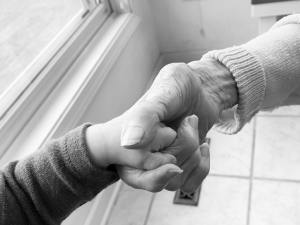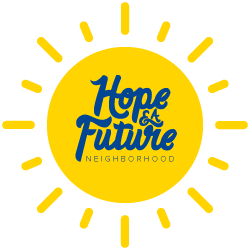On November 13th the Wall Street Journal published; How Covid-19 will change aging and retirement By Anne Tergesen. It is well worth reading. The article quotes Marc Freedman, president of Encore.org, a nonprofit working to bridge generational divides. Marc states;
Age segregation “has not prepared us well for living longer lives” . . . With relatively little day-to-day contact between younger generations and elders, “each life stage we move into we are utterly unprepared for.” Age segregation, he says, encourages a view that an aging population is “a problem to be solved” rather than a “repository of social, intellectual and community capital.”
With all that is within me, I have lived and believed this my entire life. I benefited from relationships with older adults–both healthy and frail my entire life. A number of years ago my husband pointed out that most of the childhood memories I share are with my grandparents. And after he said it I realized he was right. It was my grandparents that had time to read to me and to teach me all kinds of wonderful things. They would listen to my questions and look into my eyes when we talked. Their answers carried wisdom, love and humor.
One of the pearls I learned as a child from my Grandma Ruth was, “If you are feeling sad, go do something good for someone else. It will make you happy!” So when I was a teenager and my peer group was going down a road I did not care to travel–in a moment of loneliness, I remembered Grandma’s words. I walked into a hospital and asked if anyone could use a visitor. And I made one of my best friends that day. She was old enough to be my Grandmother and wracked with a debilitating muscle disease. But she was full of intelligence, wisdom and stories. In later years she called us the “mutual admiration society”. She encouraged me to pursue my dreams and prepared me to overcome obstacles. There were so many other older adults in my life, I could fill a book with their stories! They helped me see life through a seasoned lens and taught me how to think before reacting. And now as I am becoming an older adult, I am grateful for the younger and older people I share life with. If you want to see the richness of life, you really need to see it through an intergenerational lens. I hope more people are learning this.
 At Hope & A Future our intergenerational household has weathered this COVID year with amazing resilience! Our days are filled with animals, songs and everything from a newborn baby to 90+ year olds! So far we have stayed happy and healthy and visited others virtually and on the other side of glass. We are safe and we care about each other. One thing people with dementia know, is when they are loved (or not) and how to love back. We have flourished helping and loving each other this year.
At Hope & A Future our intergenerational household has weathered this COVID year with amazing resilience! Our days are filled with animals, songs and everything from a newborn baby to 90+ year olds! So far we have stayed happy and healthy and visited others virtually and on the other side of glass. We are safe and we care about each other. One thing people with dementia know, is when they are loved (or not) and how to love back. We have flourished helping and loving each other this year.
The Wall Street Article talked about the technology boom during the pandemic. We have been amazed to watch dementia patients become comfortable with and enjoy facetime and zoom visits. This has helped fight loneliness. And we have been grateful for telemedicine! Last week we were able to show a doctor the beginning of a serious infection on the computer screen and get helpful treatment within hours! At the beginning of the pandemic, we were nervous about how televisits would be received by people that sometimes think their reflection is someone that will not answer their questions. But they have enjoyed these visits along with safe visits outside in fresh air! We have found ways to be together, even when apart! Yet the human need for contact is not met with televisits. But in a group living situation, we have been able to live like a family and hugs are allowed. Small intergenerational group homes have shown a new strength during the pandemic and have benefited young and old. 
The Wall street article states:
Studies indicate that loneliness may be linked to a greater risk of death, cognitive decline, depression and heart disease.
This has been known for a long time–yet we have continued to put all of the old people in large buildings that most people are uncomfortable visiting let alone living in. And their health and mentation deteriorate rapidly. Because traditional thinking of care is more medically oriented than socially oriented–very few people are lucky enough to make a real friend in these settings. As I have written before, Americans fear institutionalization more than death. Yet the roadblocks to Hope & A Future’s next phase of intergenerational housing has taken 18 years to untangle. Many people interested in building intergenerational living settings have either given up or built hoping no one will notice that they are breaking rules. We believe we are at least very close to moving forward with a project that is legally replicable! And if so, diverse people young and old, rich and poor will benefit!
This year of living in greater isolation has put a microscope on the problems that come with too much being alone! Depression and anxiety have risen dramatically along with physical ailments. Many people have found they do not enjoy working in isolation and this has made even young people begin to look at retirement with some trepidation! I believe this realization will benefit younger generations in many ways. The Wall Street Journal article quotes George Kinder:
The break from routine has also freed up time to assess plans, values and the kind of legacies we want to leave, says George Kinder, founder of the Kinder Institute of Life Planning. As a result, he says more of his clients–and the clients of financial advisers who train with him–are reevaluating what’s important in their lives and changing their plans.
To prompt clients to clarify their goals, Mr. Kinder asks three questions: What would you do if you had all the time and money in the world? How would you live if you knew you had only five to 10 years left? And what would you most regret if you died tomorrow?
“Covid essentially poses the same questions,” says Mr Kinder.
Ellen Goodman is quoted as saying:
The virus has enhanced the feeling “that life is short, which is ordinarily something we are aware of occasionally, but this is a collective moment” of reckoning that “the clock is ticking” says Ellen Goodman, co-founder of the nonprofit Conversation Project, which is dedicated to encouraging conversations about end-of-life wishes.
“What matters is finding meaning and doing what really matters to us,” she says, rather that is to be good to people or study classical music or make the world better through commitment to a cause.
Traffic and downloads of end-of-life planning material have surged this year , she says.
As difficult as it is to plan for death, experts say it is crucial that people prepare. It can improve not only how we live our last days, but how our loved ones deal with our deaths.
Because I have hung out with older people my entire life, I faced death at a young age and I see this as a gift. End of life planning includes how much and when to stop treatment. Ellen Goodman believes that more people may now decide against more treatment in favor of choosing more family time. I was 5 years old when my Grandmother decided to leave the city hospital to return home to be with her family for whatever time she had left. That was in the 1960s before hospice was available. But she had time to talk with me on a child’s level about dying and about how much she loved me. I value those visits with her as among my most precious assets. And knowing that death is real at a young age, simply makes every day more precious. It really is true that when you know how to die, then you really know how to live! So it is a good lesson to learn early!
Among the assets older adults have, is resiliance! They have made it through all kinds of hard times. Some handled it better than others. But I noticed a long time ago that those who learned how to work together, share and forgive are the happiest older people. These are the people who live with overcoming joy! And they are the people that can help you through this pandemic!
Amid Covid, Ms. Good man says, “there are some signs of a deeper understanding of how we need each other.”
man says, “there are some signs of a deeper understanding of how we need each other.”
We do indeed need each other. And we need to help each other as much as we sometimes need to be helped. With that realization, we will learn to live together in all kinds of diversity, including age diversity and flourish! So here’s to making your life more intergenerational–for the long haul!
Ms. Tergesen is a reporter for the Wall Street Journal in New York. She can be reached at [email protected]

